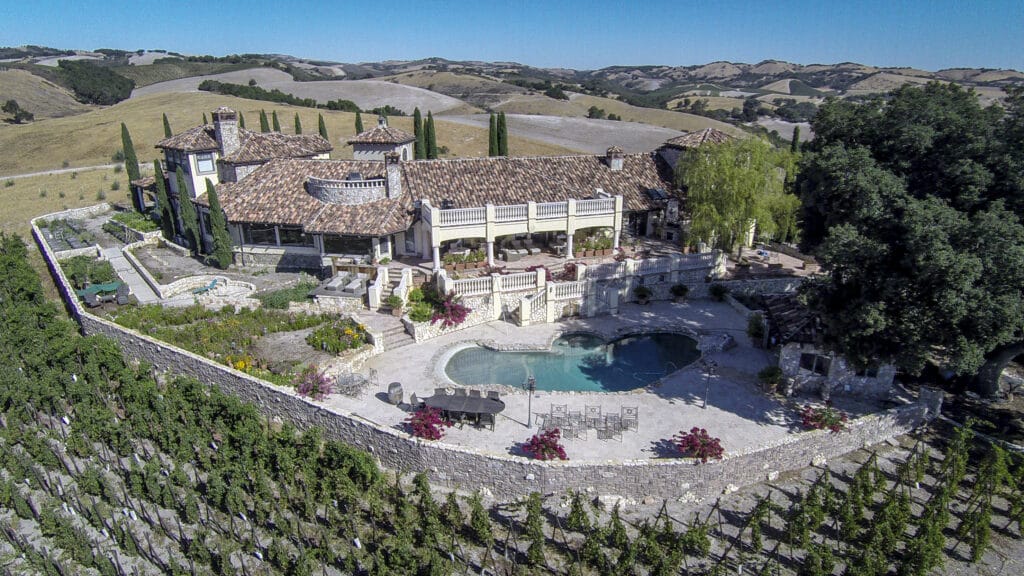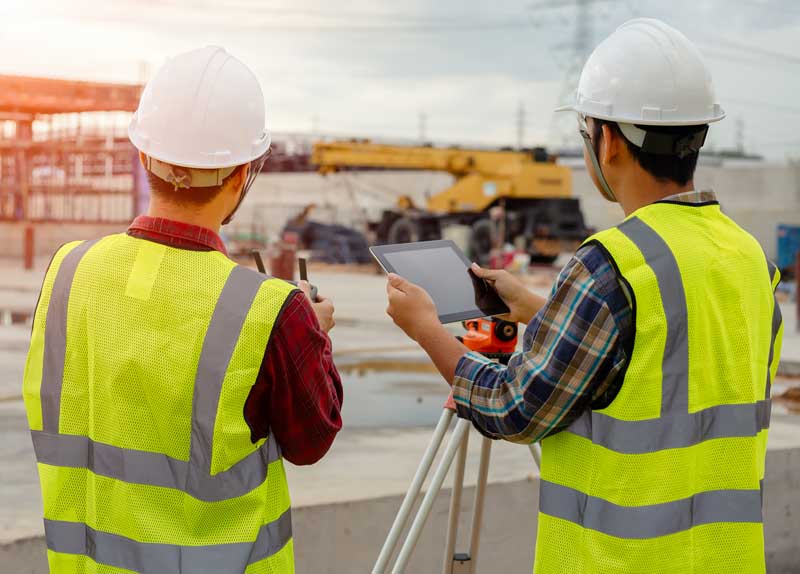
The simple fact is the real estate market is a veritable magnet for drone service providers of all skill and experience levels; from the most tenured real estate drone photography company to the guy who splurged on a Mavic 3 and read Drones for Dummies (yes, it really exists!). In the case of the former, these drone photography companies have invested significantly in training and equipment; more importantly, they have secured their FAA credentials and are adequately insured. The latter, well, let’s just say that shortcut could cost you dearly.
Explosive Growth: Opportunity and Risk
The drone industry is expected to grow at 15.37% CAGR over the next five years – and that growth is expected to continue. Sales of consumer drones in the US exceeded $1.25 billion in 2020 and, as of January 2021, there are 873,576 drones registered in the US. Of that number, registered commercial drones total 365,194. To round out the total drone population, the FAA reports 504,878 registered drones that are used primarily for recreational purposes.
This is incredibly exciting news for the drone industry and aligns with most industry experts who project the commercial drone industry to grow to $63.6B (yes Billion!) by 2025. But with the industry’s explosive growth, we foresee a proverbial land rush of new aerial photography service providers entering the marketplace – unfortunately, a few who will knowingly cut corners to make quick cash. When you consider only 225,866 (or roughly 26%) of the total drone population are operated by drone pilots who hold an FAA Part 107 Certification, it becomes even more critical for real estate professionals to ask drone service providers a few very important questions.

Photo: Courtesy of Jim Brammer Photography
Amateur Drone Operators Drawn to Real Estate
Being acutely aware of the current real estate bull market, we see significant competition for real estate drone photography. Novice drone operators are naturally drawn to real estate photography. With minimal overhead and modest investment in their business, the untrained and un-insured drone operator can compete on razor thin margins and offer super low prices. Without sufficient professional training and insurance coverage, it’s easy to see how something might go wrong. It’s understandable, however, that we see so many real estate professionals opt for the lowest bid but know there are risks associated with going that route – not only to the drone pilot but also the agents themselves.

“You Can Pay Me Now, or Pay Me Later”
This brings to mind the old Fram Oil commercial where the auto tech famously said, “You can pay me now or, you can pay me later”. In short, it’s wise to consider more than just price when hiring a drone photography service. We hope these 5 questions help:
1. Minimize Financial Risk and Personal Liability: You don’t have to look far to find evidence of near catastrophic drone-related accidents. There are plenty of examples: Here in Southern California, as recently as last September, a Hollywood man was charged with reckless operation of a drone when after responding to a report of a burglary, the suspect flew his drone into an airborne police helicopter, forcing an emergency landing after the mid-air collision. Just last December, a Philadelphia man was slapped with a $182k fine, the 2nd largest of all time, for conducting at least 26 unauthorized drone flights from December 2019 through August 2020. Fortunately, both incidents were single-entity related but know that, if either of these incidents were being performed in the course of providing commercial drone services, the legal actions could extend to the hiring entity. Action: Ask your drone pilot to show evidence of current aviation liability insurance from a reputable drone insurance carrier. It is a good practice to insist that your drone provider carry a minimum of $1M in liability coverage.
2. Verify Pilot Technical Competency: The FAA offers a commercial drone pilot certification and an official license. Commonly referred to as Part 107, this certification requires rigorous pre-test training on a variety of highly technical aviation and weather-related concepts and, with a passing test score, provides the drone pilot with a sUAS remote pilot certificate that authorizes them to fly commercial drone missions. Hiring a non-FAA Part 107 licensed pilot should leave serious doubt in their ability to truly understand the more technical aspects of real time airspace interactions with other manned and un-manned aircraft as well as the more sophisticated aviation-related “rules of the road”. Additionally, Federal statute (49 U.S. Code § 46306(b)(8)) declares that “a person shall be fined (up to $250,000) under title 18, imprisoned for not more than 3 years, or both, if the person . . . knowingly and willfully employs for service or uses in any capacity . . . an individual who does not have an airman’s certificate authorizing the individual to serve in that capacity”. Action: Ask to see the operator’s FAA issued Part 107 Remote Pilot License and verify that it is current.
3. Ensure that High Safety Standards are Enforced: The FAA has a system in place to report drone accidents. In fact, FAA Part 107 certified drone pilot are required to report an incident to the FAA Regional Operations Center within 10 days if a drone accident: Results in serious injury to any person, Causes any person to lose consciousness, or Causes damage to property (other than their drone) exceeding $500. But with only 26% of the drone population being FAA certified, the reality is that many accidents will go unreported to the FAA. That doesn’t mean the Agent’s risk has been diminished. Drone accidents are still reported to police and personal insurance if damage to property or a 3rd party is the direct result of a crash due to pilot error. And, it is likely that drone incidents will increase in proportion to the number of new entrants into the commercial marketplace as, for many, the allure of fast cash is just too tempting to bypass. Action: Hire only FAA Part 107 Certified Pilots.
4. Confirm that Missions are Well Planned and Properly Executed: Drone mission planning is THE most critical part of the overall mission.FAA-certified commercial drone pilots are highly trained in every aspect of mission planning. From airspace restrictions to real time weather to airborne interactions with other un-manned or manned aircraft, commercial drone pilots are inherently able to mitigate risks by ensuring every flight is well planned and professionally executed. Action: participate in your drone crew’s pre-flight mission planning. Ask questions and use your judgement. Bottom line, ask to see the drone pilot’s pre-flight checklist. Every professional pilot will have one.
5. Expect Project Deliverables to be Met with Professional Output: Commercial drone pilots live and die by their reputation. They have each made a significant investment of time and money in their business and are generally here for the long term. Their output is their calling card so great attention to deliverables and high-quality output are inherent in most drone professionals. Action: ask to see the drone service provider’s reel, online portfolio, YouTube and/or Vimeo page and, most importantly, ask for references from former clients.
Summary
While increased drone usage will surely bring new and exciting economic opportunity for business, more drones in the sky will also bring more risk for drone crashes and drone injuries. Now is the time to protect yourself from professional and personal liability. Hire only FAA Part 107 certified and insured drone pilots for your next real estate project. Also, make sure to read: Questions to Ask Your Drone Service Provider to learn how to protect yourself from financial risk!
- Drones and Construction – The 2025 Outlook - February 8, 2025
- The Future of Business: Top 7 Commercial Drone Applications Across Key Sectors - January 19, 2025
- From Over-Ordering to Supplier Accountability: How Drones Redefine Stockpile Management - January 12, 2025

